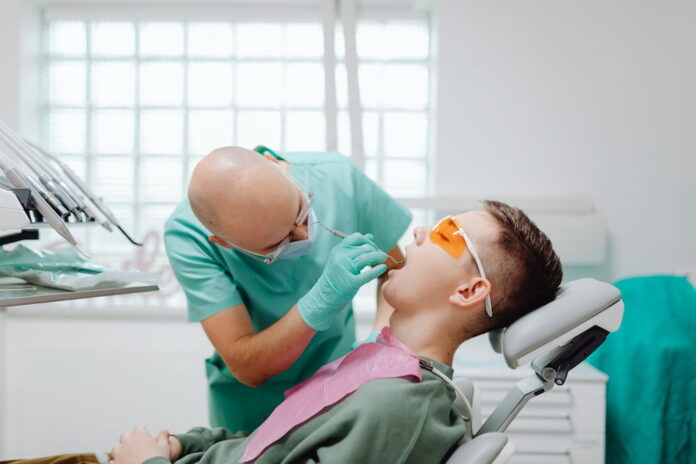Most people get their third molars, also known as wisdom teeth, between the ages of 17 and 25. These are the molars that appear after the second molar. Most people have four of them, but some do not receive all of them. Removal of Wisdom teeth is one of the most common reasons young people visit the primary dental clinic.
Wisdom teeth are frequently problematic because they do not have enough room or are positioned incorrectly. Many of these issues are caused by teeth emerging at inconvenient times.
Third molars can enter from the mouth’s side, top, or bottom. When these issues arise, it is best to have them removed so that the other teeth are not permanently damaged.
What can happen if wisdom teeth are extracted?
The majority of wisdom tooth extractions go off without a hitch. Although most wisdom tooth extractions do not result in significant pain or other complications, some do.
Even the most complicated situations can produce more or less significant outcomes. If you want to avoid complications after having your wisdom teeth extracted, follow the advice of your dentist. So here are some.
Bleeding
Bleeding is common when third molars are extracted. You can usually get rid of it by biting on the gauze for an hour.
Contact your dentist immediately if the bleeding is severe or does not stop.
In the meantime, chew on another amchafibrin pad and avoid spitting to avoid moving the blood clot.
It frequently happens after oral surgery, so having blood in your saliva after a tooth extraction is not unusual.
What is not normal is excessive bleeding that fills the mouth. If this occurs, you should contact your dentist immediately. Biting on cold gauze for a few minutes usually stops minor bleeding.
Some dentists also recommend using a wet tea bag because it contains tannic acid, which helps stop bleeding. High activity may worsen bleeding, so avoid exerting yourself immediately after the intervention.
However, if there’s still excessive bleeding after 24 hours, you should start looking for an emergency dentist in Las Vegas or one near you so they can immediately remedy the problem.
Pain/discomfort
It’s normal to experience discomfort after having your wisdom teeth extracted, especially if the procedure is complex.
To alleviate your discomfort, your dentist should have prescribed pain relievers. Some discomfort is normal after wisdom tooth extraction, but it usually subsides within 8 to 12 hours.
Depending on the type of surgery, your dentist will determine how to manage pain afterward. Most of the time, this will be accomplished through medication.
If the pain persists for more than two days and pain relievers are ineffective, you should consult your dentist because you may have a dry socket.
Swelling and redness
This is another common issue that can arise following the removal of a wisdom tooth. To reduce swelling, your dentist will prescribe anti-inflammatories.
The inflammation is at its peak between 24 and 72 hours. It usually goes away quickly after that. It typically grows more prominent around the mouth and on the sides of the face. Putting something cold on it will stop this.
The cold should be placed down every 15 minutes at various times. It is only effective for the first six hours. If that’s the case, don’t put any more cold on your face.
The swelling usually goes away in 3 to 4 days. If the swelling does not go away within 36 hours, you should stop using ice and instead try moist heat. This reduces swelling and makes moving your jaw easier.
Food restrictions
The first foods should be liquids or very soft foods. You won’t have to chew on the side where your tooth was just extracted.
Avoid crunchy foods, which may become lodged where the tooth once was. You will feel better and regain strength if you eat soft foods and drink plenty of water. Drinking through a straw is not recommended because the suction could cause alveolitis or excessive bleeding.
Fever
A low-grade fever can accompany wisdom tooth removal.
Infection
There is a risk of infection following surgery, especially if your wisdom teeth are in the way. Your dentist will prescribe an antibiotic to prevent this from happening.
Paresthesia
Do you notice how numb the tongue is? Have you noticed that your upper lip or chin is still sleeping? Paresthesia is already a problem that occurs infrequently but can occur. You can also take vitamin supplements, such as vitamins B1, B6, and B12, to aid nerve healing whenever you have all these symptoms.
Read Also
- Why comprehensive health insurance with maternity is beneficial in the UAE

- Modern Approaches to Adolescent Mental Health Treatment for Lasting Recovery

- How to Find a 5-Star Dentist Near You

- Your Easy-Peasy Guide to Brewing Amazing Matcha

- Embracing Holistic Wellness: Insights from a Lansing, MI Health Center







